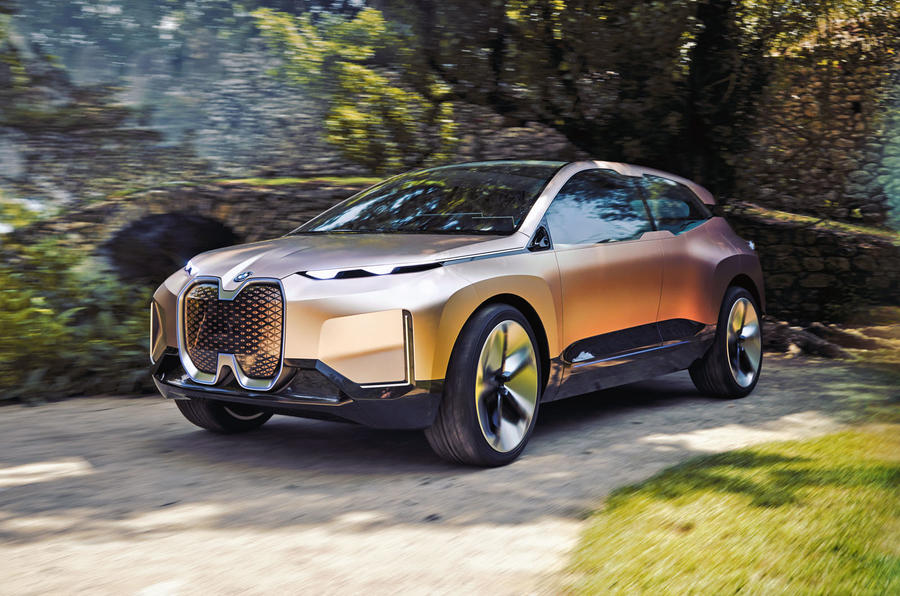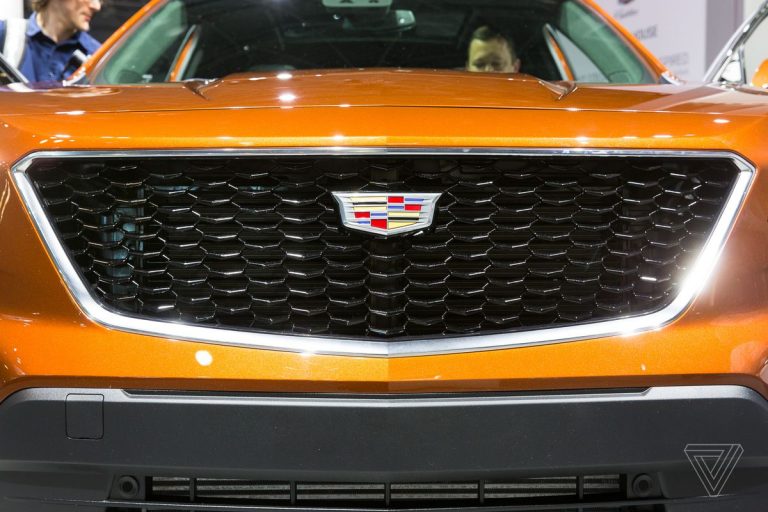As the world increasingly turns to renewable energy sources to combat climate change, car manufacturers are under pressure to make the switch to electric vehicles. Some carmakers have already committed to going all-electric, while others are still weighing their options. The push for electric vehicles is being driven by a number of factors, including government regulations, consumer demand, and advances in technology. Government regulations are becoming increasingly stringent, with many countries setting targets for electric vehicle sales. Consumer demand is also growing, as more people become aware of the environmental benefits of electric vehicles. And as battery technology continues to improve, electric vehicles are becoming more practical for everyday use. So when will car manufacturers go all electric? It’s hard to say for sure, but the trend is definitely moving in that direction.
Electric motors will replace internal combustion engines in the next decade. Several countries have announced plans to phase out the sale of new vehicles powered by internal combustion within the next decade. The first all-electric car from the company will be released in 2025 in a joint venture between the company and Rolls-Royce. From 2026 onwards, every Audi car will be made of electric, according to the company. The company intends to invest £2.5 billion over the next ten years in order to become a fully electric brand by 2030. Bentley intends to have its first electric vehicle available in 2025, and will have another every year for the next five years. The iconic Buick brand of General Motors has announced plans to introduce a hybrid vehicle.
By 2030, Fiat intends to sell vehicles entirely in electric mode, while sales in Europe are solely in electric mode after 2027. To reach this goal, Ford intends to sell 40% of its domestic sales electric by 2030. General Motors plans to introduce 30 new electric vehicles by 2025. In 2023, Ford intends to sell 600,000 electric vehicles worldwide. Honda intends to launch its first mass-market electric vehicle in the United States in 2024 with the Prologue, which is expected to sell 70,000 units annually. The company intends to stop selling internal combustion vehicles in Europe in 2035 and globally in 2040. Kia hopes to sell 40 percent of its electric vehicles powered by hydrogen by 2030, and 880,000 total EV sales by that time.
Jaguar and Land Rover will discontinue the I-Pace in favor of a new generation of battery-powered vehicles. JLR nameplates will be available in pure electric form by the end of this decade. The 911, 718 Cayman, and Boxster are likely to remain in production until 2030. Rolls-Royce will stop producing its legendary V12 engines by 2020. In 2020, the new Ghost will be the final car to be powered solely by internal combustion engines. A total of 30 new electric vehicles will be manufactured by Toyota between 2020 and 2030. By 2025, Volvo intends to sell half of its global vehicle sales solely in plug-in hybrids and half in fully electric vehicles.
What Year Will All Cars Be Electric?

According to a recent announcement, all newly released vehicle platforms will be electric-only until 2025, and the automaker plans to make electric cars a reality by the end of the decade, with the caveat that market conditions
Electric Cars: The Future Of Transportation
By 2050, all new car sales will be made entirely of electric vehicles, according to estimates. The rising cost of batteries, which are becoming more efficient, is a major factor in this. Electric vehicles, on the other hand, are far more environmentally friendly. Because they don’t emit any carbon dioxide into the atmosphere, they’re a lot easier to maintain.
In other words, it won’t be long before all gasoline-powered cars are replaced by electric ones, and that won’t be a problem. We can be proud of this outcome because it clearly shows that we can all be proud of a future in which fossil fuels are no longer a viable source of energy.
What Percentage Of Cars Will Be Electric By 2025?
In 2025, plug-in vehicles will account for 23% of global new passenger vehicle sales, up from 10% now. Three-quarters of the power will be consumed by electricity.
The automotive industry has undergone significant changes over the years. In the early twentieth century, internal combustion engines (ICEs) powered the vast majority of cars. As the ICE became less efficient, we began to emit harmful pollutants into the environment. Electric vehicles were soon to be a reality. Electric vehicles have made a significant contribution to the automotive industry since their inception. According to industry analysts, electric vehicles will account for 30% of global vehicle sales by 2025. Tesla has been at the forefront of electric vehicle technology, developing cutting edge technologies while also creating affordable electric vehicles.
The goal of the automotive industry is to develop more efficient and better models. Electric vehicles are becoming popular all over the world, and their costs are rapidly decreasing. According to a new report from New Energy Finance, electric vehicles will make up 35% of all new passenger vehicle sales by 2025. In the long run, we may see electric vehicles account for 30% of global vehicle sales. All cars are likely to become electric in the near future. There is, however, concern that the infrastructure required to support EV operation is still in its early stages. According to some experts, the EV will be widely accepted in the next few years.
According to those who do not believe this transition will occur until after 2040, ICE vehicles will not be phased out. Our roads are likely to become more congested as electric vehicles make up a larger portion of the market by 2025. Today’s technology makes it simple to imagine that by 2050, all cars will be electric. The best thing we can do is wait for battery technology to improve sufficiently and the infrastructure to be built so that charging stations can be built everywhere.
Electric Vehicles To Make Up Every New Passenger Car Sale By 2040, Predicts Oil Giant
It’s no surprise that electric vehicles will be the fastest growing segment of the market in the coming years. According to the EPA, electric vehicles accounted for 1% of all new vehicle sales in the United States in 2016, up from 3% in 2010.
According to a study conducted by the oil giant, by 2020, electric vehicles will be available for purchase on a global scale. The prediction is no surprise given the growth of electric vehicles in recent years.
What Car Companies Are Not Going Electric

The majority of car companies are in the process of transitioning to electric cars, however a few notable exceptions are Tesla, Toyota, and Honda. These companies have been slow to embrace electric cars, and it remains to be seen if they will make the switch in the near future.
Electric vehicles are more energy-efficient and less expensive to maintain than traditional cars. Although many companies have announced plans to build their own fully electric vehicles, they have not yet specified a date. We take a look at ten traditional automotive giants that are still working on electric vehicles in this list. Dodge is a division of Fiat Chrysler Automobiles that has been known for producing muscle cars. The Dodge EV concept car, which was supposed to be an all-electric vehicle, has now been scrapped. Land Rover intends to pursue an EV strategy of its own in the future. Despite having been left behind in the EV market, Toyota has announced a strategy for electric vehicles.
Toyota had previously announced plans to introduce new models in 2025 that would include gas-electric hybrids, hydrogen fuel cells, and battery electric vehicles. Mazda will not commit to going completely electric because it is a hybrid with a gasoline engine and no electric motor. At FCA’s Detroit Tech Center, the all-electric Ram pickup is currently being built.
Why Is Toyota Not Going All Electric?
Despite competitors’ efforts to go entirely electric due to concerns about how quickly consumers will embrace new technologies, Toyota intends to keep gas-powered cars as a major component of its lineup.
Will Car Companies Stop Making Gas Cars?
The state regulatory body in Texas, the country’s largest automobile market, voted on a policy Thursday that will prohibit the sale of new gas vehicles by 2035. As part of an ambitious plan to fight climate change, it is one of a few states expected to adopt this step.
What American Car Company Is Going All-electric

An American car company that is going all-electric is Tesla. Tesla’s all-electric cars are powered by batteries, and the company has said that it plans to transition to solar power in the future. Tesla is one of the leading companies in the electric car industry, and its cars have won multiple awards.
by 2022 every major car company will have made the transition to clean energy. Several states in the United States are attempting to prohibit the sale of gas-powered vehicles in response to rising demand for electric vehicles. There is still much to do in the early stages of our transition. Jaguar Land Rover and Ford are among the most prominent car manufacturers that have announced plans to go green. The Postal Service will spend $482 million over the next ten years on fuel-efficient or electric vehicles. Z-series vehicles (ZEVs) will account for half of all deliveries by 2025.
Why Electric Cars Will Never Work
Electric cars will never work because they are too expensive to build and maintain. The batteries required to power them are also very expensive, and they need to be regularly replaced. Additionally, electric cars have a much shorter range than gasoline cars, so they are not practical for long-distance travel.
Electric car owners in California were advised to wait a few hours before plugging their vehicles in. Last week, state regulators approved a plan to prohibit the sale of new gas vehicles by 2035. It is not reasonable to blame electric vehicles for the increase in electricity demand caused by skyrocketing demand, according to officials from the country’s utilities, grid operators, and clean energy advocates. The EV market is heating up, and some transit agencies are also converting their fleets to run on EV batteries. As a result, utilities are planning for an increase in demand for electricity as a result of increased grid-friendly load growth. During the peak hours, charging accounts for less than 1% of the total load of the California grid. However, demand for other types of electric power is expected to increase significantly over the next several decades.
EV owners are encouraged to charge their vehicles at off-peak hours thanks to time-of-use pricing. EV-to-grid technology allows electric vehicles to sell their battery back to the grid. The United States needs to upgrade its power grid in order to avoid power outages during peak demand. We cannot simply say, “OK, the grid can handle it; it will handle itself.” ” He told me one thing,” Fitzgerald says.
Is Toyota Going All-electric
Yes, Toyota is going all-electric. The company has announced plans to phase out gas-powered cars and trucks by 2050. Toyota is investing billions of dollars in electric vehicle technology and is partnering with other companies to develop a charging infrastructure.
A list compiled by Greenpeace of the ten largest automakers‘ efforts to “decarbonize” ranked Toyota at the bottom of the pile, citing slow progress in its supply chain and the sale of zero-emission vehicles, which account for less than 1% of its sales. In December, the company announced plans to invest $48 billion (4 trillion yen) over the next decade in a lineup of 30 battery-powered electric vehicles. Toyota aims to sell 3.5 million electric vehicles per year by 2030, more than half of which will come from Lexus. In addition, the company announced a $5.1 billion investment in hybrid and all-electric battery production in Japan and the United States.
Toyota’s All-electric Future
As an electric vehicle pioneer, Toyota’s move to make electric vehicles bold and well-deserved is well-deserved. One of the world’s largest automotive manufacturers, which has announced plans to go entirely electric, has made a significant statement. Furthermore, Toyota intends to offer a full range of electric vehicles, making it simple for everyone to find one that is both comfortable and dependable. We can only hope that other automakers will follow suit, which is a significant advancement for the automotive industry.
Electric Cars
Electric cars are becoming more popular as people look for ways to reduce their carbon footprint. These cars are powered by electricity from batteries, and they produce no emissions. Electric cars are quiet and smooth to drive, and they can be plugged into the electrical grid to recharge.
Electric cars, also known as electric vehicles, are fully electric vehicles that rely on batteries for power. Plug-in hybrids are electric vehicles that are similar to electric vehicles but can also run on gas. Public charging should be viewed as a convenience or opportunity to travel outside of your comfort zone on occasion. In some cases, the battery pack’s temperature drops, and occupants sacrifice additional range to heat the cabin. Before purchasing a product, you must factor in the effects of cold temperatures.
New Global Electric Vehicles
New global electric vehicles are becoming increasingly popular as people look for more environmentally friendly ways to travel. With advances in technology, electric vehicles are becoming more efficient and affordable, making them a viable option for many consumers. In addition, electric vehicles produce zero emissions, which is a major selling point for those concerned about the environment.
The increase in the number of electric vehicles registered has resulted in an increase in the production of automotive lithium-ion batteries. Demand for EV batteries increased by 200% in 2021, primarily because of the increase in EV sales in China. The EV industry will benefit from the advancement of battery characteristics as a result of increased demand, as well as from improved battery characteristics. Electric vehicles (EVs) were used to save more than 40 million tonnes of carbon dioxide equivalent (CO2) emissions globally in the year 2021, according to the United Nations. Electric vehicle batteries will reach a total installed capacity of more than 30 TWh by the end of the century. Electric vehicle charging infrastructure has grown in popularity among utilities and power companies. By 2025, we expect to have 14 million EV subscriptions. As of 2035, we predict that 100% of all new vehicles sold in Europe will be electric.
New Ev Models
There are many new EV models that have been released in recent years. Some of the most popular include the Tesla Model S, the BMW i3, and the Nissan Leaf. These models are all very different from each other, but they all have one thing in common: they’re all electric vehicles. Electric vehicles are becoming increasingly popular, as they offer a much more environmentally-friendly option than traditional gasoline-powered cars.
Cybercrimes reached a new high in 2021, with the COVID-19 pandemic providing a boost to the onslaught. The shift to remote work, which introduces new vulnerabilities, is one factor contributing to this rise. Email, text message (SMS), and social media apps are just a few of the methods of phishing. It is a type of cyberattack that involves blackmail, frequently for financial gain. If ransomware is to be successful, attackers must first gain access to a company’s network. The malicious update tool on an official Asus server was used in an attack on over 57,000 Asus laptops in Russia.
How Many New Ev Models Are There?
The number of vehicles on the market is expected to double to 134 by 2024 – twice what it is today. By 2024, the number of EV models will more than double, with a year’s supply of EV models available (212020482024 (projection)1341 more row
The Future Of Electric Cars
As battery lifespans, ranges, and affordability improve, electric vehicles will become more affordable. Electric cars will become even more popular as technology advances, making EV batteries more powerful and more affordable in the future.